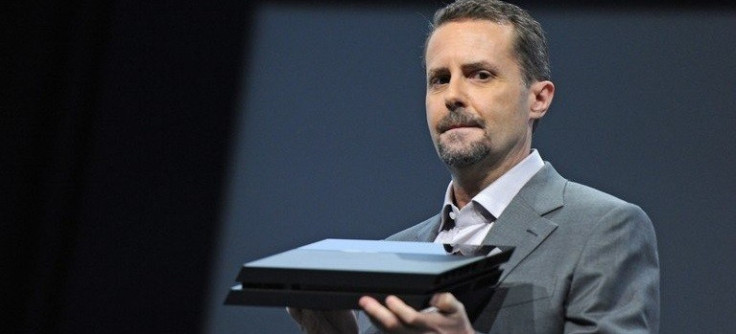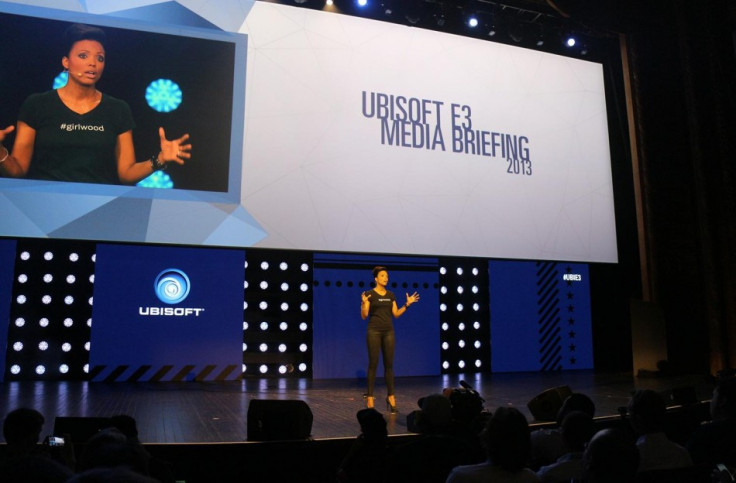Why Games Matter Blog - It's Time Keynotes Grew Up

It's Time Keynotes Grew Up - How Sony won E3 by having adults on stage
Sony got a lot right at E3 this year, effectively doing to Microsoft what a SCUD missile will do to a Faberge egg. The PS4 will be cheaper than the Xbox One, will allow users to freely trade used games and won't spy on them while they're asleep and/or naked.
But aside from obvious victories like this, Sony also undercut Microsoft - and EA and Ubisoft in fact - just by coming over like professionals. This was a company that was confident with its product and it didn't need any of the faux matey "hey we're all gamers lol" sod-banter that ruined the other keynotes.
Do you know the kind of thing I mean? I think the first time I came across it was on the back of an Innocent smoothie, where the blurb was all "yeah we just like, grow fruit and stuff and it's totally cool that you like, drink it, yeah?" It's that forced friendly, gentrified tweeness that now seems to have permeated pretty much all advertising, from Ben and Jerry's to those Coke bottle labels with people's names on. Google does it; Lush does it; it's everywhere, and E3 was no exception.

Look at the EA keynote, when John Vechey from PopCap turned up on stage wearing a Plants vs Zombies zombie head. Or Ubisoft, where Aisha Tyler had a t-shirt on that said "girlwood" and kept turning to the crowd saying things like "wow, fun, right?" every time a gameplay video ended. Can people not just shut up and talk like, you know, a business? I always think of Alfred Hitchcock and how he'd insist on wearing a suit whenever he was working on set. I want the people working in games to be like that; I want to be talked to by someone I can trust.
And I don't trust the cool guy with the t-shirt and the guitar, the one who keeps saying "like" all the time. I don't trust the man on stage in the zombie hat to effectively oversee and operate a company.
Two Camps
What this boils down to is, if you're giving a presentation in front of millions of people about the future of your business and, by-and-large, the future of an entire industry, take it seriously. Get the CEO up there, the president. Don't get the woman from Archer, or the man dressed as a zombie because no-one's going to respect those people, no-one's going to listen. And on top of everything else, you're ruining your company's image.
The people subjected to "hey we're all friends, yeah?" advertising fall into two camps.
The first hates you because they're smart enough to know you're lying. They know your company doesn't actually like its customers, and that, rather than grinning celebs, the people pulling the strings are men in suits. They know this and they know you're not showing it to them, so they're either offended that you think they're too stupid to notice or, like me, offended that you won't give the people with genuine knowledge and power some press time.
The other camp, sadly, IS dim enough to fall for it. They think Ubisoft, EA and Microsoft do want to be friends. But what this means is that, rather than generate greater brand loyalty, you set your company up for enormous consumer backlash. Whenever you make a tough decision as a business, which, remember, IS what you are, if you've spent years convincing your customers they're your chums, they're going to be all the more annoyed. They're going to feel betrayed.

If there's a reason gamers often come over as entitled, it's because companies interact with them in a way that suggests they care, that they're their friends. It's precisely the transparency BioWare offers its players via Battle.net that led to the outcry over Mass Effect 3's ending. In the old PS1 days, before the internet, and before this cuddly-wuddly marketing spiel took off, that would never have happened. You have to put a barrier between yourself and the consumer, otherwise they either aren't going to trust you to make hard choices or will simply migrate to a competitor that's willing to cosset them just like you used to do.
So, for those many reasons, here's to Sony, which filled its E3 keynote with respectable looking men in suits talking matter-of-factly about the company's business. There was still some matey rubbish, mostly in the shape of Bungie's Destiny play through, but it was nothing compared to EA's zombie man, or Ubisoft's Aisha Tyler, or that bit in the Microsoft conference with the two berks playing Killer Instinct. It was just straightforward. It wasn't patronising or false; Sony came across as genuinely believing what it could do with the PS4 and presented itself as authentically, clearly and as grown-up as possible.
And that, I think, is the handle: Growing up. Games are growing up; the people who play games are growing up; so it only follows that the companies making games should project an image of also being grown up. Enough of this condescending t-shirt and jeansery. It's time to use your big boy words.
© Copyright IBTimes 2024. All rights reserved.























